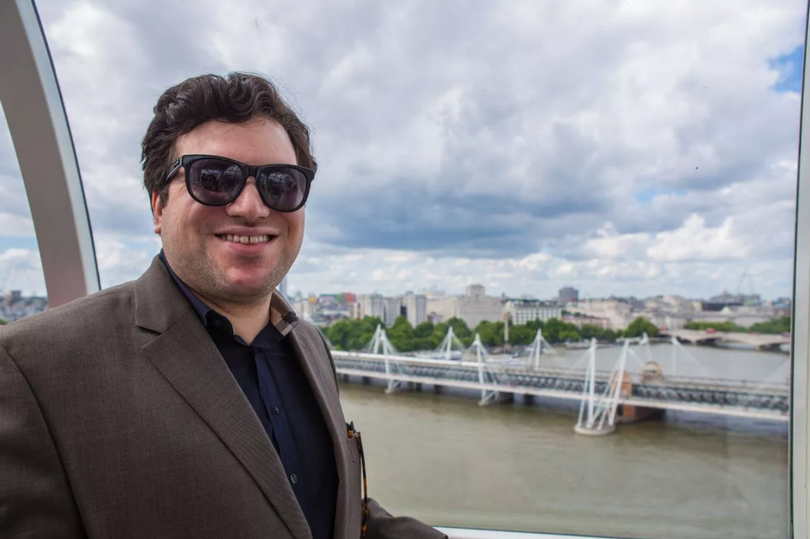Former Edinburgh prisoner Nicholas Rossi's terrifying 'final' words before faking death

Nicholas Rossi fled America to come to Scotland under an alias, though was eventually found and attempted to fake his own death.
Wanted in connection with rape claims, he went to extreme lengths to try and escape his trial but has since been extradited to the US, reports the Mirror. Since his arrest in December 2021 at a Glasgow hospital, Rossi fought against his return.
He appeared in court in a wheelchair, using an oxygen mask and speaking in a British accent. As the Channel 4 documentary Imposter: The Man Who Came Back from the Dead tells us, he insisted he was an Irish orphan named Arthur Knight.
READ MORE - Scottish blood scandal victim says until compensation paid PM's apology means 'nothing'
READ MORE - The moment Edinburgh train passengers break out in song with spontaneous bagpiper
But Judge Norman McFadyen of Edinburgh Sheriff Court had previously dismissed the fugitive's claims of mistaken identity as "implausible" and "fanciful" after the man said he had been framed by authorities who tattooed him and surreptitiously took his fingerprints while he was in a coma so they could connect him to Rossi.
US authorities said Rossi is just one of several aliases the 36-year-old has used and that his legal name is Nicholas Alahverdian. In 2008, he was found guilty of sexual imposition and public indecency while a student at Sinclair College in Dayton, Ohio, in 2008.
He is alleged to have attacked a former girlfriend. The Utah County prosecutor's office said it found complaints alleging Alahverdian abused and threatened women in other states.
Join Edinburgh Live's Whatsapp Community here and get the latest news sent straight to your messages.
Registered sex offender Rossi fled to the UK in 2017 before moving to Glasgow, Scotland, where he got married in February 2020. A couple of weeks later, he infamously faked his own death, taking his "final breaths" in the presence of his wife, two children and extended family, who all gathered around his bed.
His last words were reportedly: "Fear not and run toward the bliss of the sun." It was alleged that he died of non-Hodgkin lymphoma - a type of cancer that affects the lymphatic system. But the authorities later revealed that the story was fake and that Rossi never had cancer.
It wasn't until he contracted a very real case of Covid-19 that Rossi was finally caught. He drew the attention of the authorities when he was admitted to the Queen Elizabeth University Hospital in Glasgow in December 2021 with a severe case of the disease.
An Interpol red notice for him led nurses and doctors to suspect his true identity and alerted the authorities, who fingerprinted him, noted his tattoos and determined that he was, in fact, Alahverdian. After losing his appeal against being returned to his homeland on December 14, it is believed he left for the US on a private flight from Edinburgh Airport on January 4.
Sign up to Edinburgh Live newsletters for more headlines straight to your inbox
Former Utah county attorney, David O Leavitt, welcomed the completed extradition. He told BBC: "Today marks a pivotal moment in the pursuit of justice, as the responsibility shifts to Utah County. This would not have happened without the amazing co-operation from law enforcement across the world.
"I'm very grateful for the co-operation we've received from the Scottish authorities. This wouldn't have happened without them." Lord Justice Clerk Lady Dorrian said during a hearing: "The evidence supporting that the appellant is Nicholas Rossi was overwhelming.
"He did not, nor does he now, produce anything which would suggest to the contrary." She added: "The conspiracy theories which he tendered in explanation were properly rejected. The sheriff carefully considered the submissions made on the appellant's behalf as to the potential barriers to his extradition."
She also debased the claims that he was suffering from mental illness or that he was too physically unwell for extradition — witnesses testified to the contrary, including several experts and personnel in HMP Edinburgh, where he was being held as the hearings took place.

 Yahoo News
Yahoo News 
